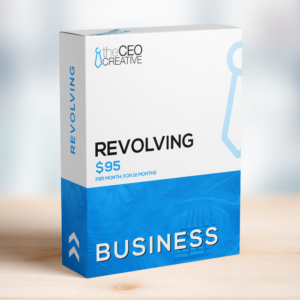Tier 2 Net 30 Accounts: Mid-Level Credit Building Opportunities
Welcome to the often overlooked yet incredibly rewarding world of Tier 2 Net 30 accounts! If you’re a business owner looking to build your creditworthiness, these mid-level credit building opportunities could be your golden ticket.
Imagine your business has already successfully tackled the basics of establishing credit with Tier 1 accounts. Now’s the time to aim higher.
Tier 2 Net 30 accounts serve as a perfect bridge, moving you from the early stages of credit building to more advanced tiers. They allow businesses to enhance their credit profiles through Net 30 payment terms, which offer the benefit of making full payments for purchases within 30 days of invoicing.
This approach can lead to a stronger business credit profile, improved cash flow management, and an abundance of future financial opportunities. Think bigger loans, better interest rates, and, say, venture capital investments.
Here are some typical examples where you might find Tier 2 Net 30 accounts:
– Office Supply Stores: The CEO Creative, Office Depot, and Quill
– Home Improvement Stores: Home Depot and Lowe’s
– Wholesale Suppliers: Uline and Grainger
– Fuel Cards: ExxonMobil, Chevron, and Shell
As your business grows, making the most of these credit-building opportunities can set the stage for long-term success and financial empowerment.
Understanding Tier 2 Net 30 Accounts
Tier 2 Net 30 Accounts serve as an essential step in the journey of business credit building. Picture this: your business has taken those vital first steps by establishing a couple of Tier 1 accounts, showing that you can manage credit responsibly.
But where do you go from here? That’s where Tier 2 Net 30 Accounts come into play. Let’s explore how transitioning from Tier 1 to Tier 2 works and the essential characteristics of Net 30 terms.
Transition from Tier 1 to Tier 2
The leap from Tier 1 to Tier 2 involves reaching into a broader world of credit opportunities. After demonstrating credible financial behavior with Tier 1 accounts, where modest credit lines give you a start, Tier 2 enables you to expand further.
These accounts are typically offered by vendors and suppliers spanning numerous industries — think office supplies, home improvement, wholesale options, and beyond.
The significance lies in their ability to elevate your business’s credit standing. Refining your credit profile through Tier 2 accounts sets up your business for accessing larger funding options or loans. Consider it as a financial bridge that connects your foundational credit efforts to more expansive and rewarding credit landscapes.
Key Characteristics of Net 30 Terms
What exactly are Net 30 terms? Simply put, “Net 30” establishes a payment window for invoices, meaning that the total bill is due within 30 days of receiving it. This setup is quite advantageous because it affords businesses the flexibility to manage their cash flow more effectively.
Not only does this enhance operational ease, but it also aids in planning and executing financial moves without scrambling for immediate cash to settle debts. By regularly meeting these terms, businesses steadily build a strong payment reputation.
Unveiling the Advantages: Benefits of Tier 2 Net 30 Accounts
Exploring the perks of Tier 2 Net 30 Accounts reveals a world of potential benefits that can significantly uplift your business operations and credit profile. Let’s delve deeper into these advantages:
Enhanced Cash Flow Management
Having the ability to manage cash flow is crucial to the heartbeat of any business, especially during periods of growth. The 30-day payment grace that comes with Net 30 accounts provides a cushion, allowing you to allocate resources strategically.
Your payments can coincide with subsequent income inflows, which helps maintain smooth operational momentum without stretching finances too thin.
Fortified Business Credit Profile
Regular and timely payments do wonders for your business credit score. With Tier 2 accounts, each successful transaction that meets the Net 30 deadline is reported to major credit bureaus like Dun & Bradstreet, Experian, and Equifax.
Over time, this boosts your credit profile, showcasing your business as reliable and creditworthy. The stronger your credit profile, the more options you’ll have for future financial endeavors.
Unlocking Future Opportunities
Embracing all that Tier 2 accounts offer doesn’t stop at merely enhancing credit score or cash flow. It positions your business to step into larger arenas — from securing bigger loans to exploring line-of-credit options with favorable terms.
Moreover, strengthened creditworthiness can attract potential investors or lead to venture capital opportunities, equipping your business with the financial freedom to explore new ventures and expand seamlessly.
Tier 2 Net 30 Accounts aren’t just about immediate benefits; they lay down a strong foundation that empowers your business to reach its full potential. With careful management and strategic planning, your business can unlock new doors, paving the way for growth and success.
Navigating the Landscape: Examples of Tier 2 Net 30 Accounts
When it comes to Tier 2 Net 30 accounts, businesses are blessed with a broad spectrum of options that cater to various industry needs. Let’s explore some popular categories where these accounts are readily available.
Office Supply and Home Improvement Stores
Office supply and home improvement stores are excellent sources for Tier 2 Net 30 accounts. They cover essential business needs, from stationery to maintenance tools. Some noteworthy examples include:
– The CEO Creative, Office Depot, and Quill: These office supply giants offer businesses not only the basics like pens and paper but also technology essentials and office furniture. For any entrepreneurial endeavor, these vendors are invaluable allies in keeping operations smooth and efficient.
– Home Depot and Lowe’s: Whether you’re running a construction company or a real estate service, home improvement stores have your back. They provide an array of supplies, from building materials to tools, under the Net 30 terms.
Wholesale Suppliers and Fuel Cards
In the world of business, staying stocked and fueled is vital. Wholesale suppliers and fuel card providers offer businesses a way to maintain operational efficiency.
– Uline and Grainger: These wholesale suppliers are indispensable for businesses needing bulk purchases, from packaging supplies to industrial equipment. With their Net 30 accounts, businesses can manage inventory without upfront financial pressure.
– ExxonMobil, Chevron, and Shell: For businesses on the move, fuel cards are a game changer. They provide the flexibility to manage fuel expenses without immediate payments, allowing transportation-heavy industries to thrive.
Apparel Companies and Marketing Agencies
From establishing a brand’s identity to keeping staff uniforms up to par, Tier 2 Net 30 accounts with apparel companies and marketing agencies can play a significant role.
– Apparel Companies: These are essential for businesses needing professional attire or branded merchandise, helping to maintain a polished image without straining cash flow.
– Marketing Agencies: When marketing becomes a priority, collaborating with agencies that offer Net 30 terms is beneficial. This allows flexibility in executing campaigns while paying the bill at a more convenient time.
Mid-Level Credit Building: A Stepping Stone to Success
Tier 2 Net 30 accounts aren’t just about buying now and paying later—they are a strategic asset in building a strong financial reputation.
Strategic Leveraging of Opportunities
Strategically leveraging these accounts can significantly boost your business’s credit score, providing:
– Enhanced Cash Management: The 30-day window before account balances are due helps businesses manage cash flow, ensuring funds are available for other essential needs.
– Future Financing Opportunities: By enriching your credit profile, these accounts open doors to loans and credit lines with favorable terms, an essential aspect for scaling your business.
Responsible Credit Management
While these accounts are promising, it’s paramount to approach them responsibly:
– Timely Payments: Always prioritize payments to avoid late fees and negative impacts on your credit score. Setting up reminders or automated payments can help.
– Vendor Relationships: Cultivate strong vendor relationships through consistent, on-time payments, which can lead to benefits like increased credit limits and discounts.
– Account Tracking: Keep a firm grip on what you owe and when. Using accounting software can streamline the tracking of outstanding invoices.
Navigating through Tier 2 Net 30 accounts is about smart choices and proactive management. With a strategy in place, they are not merely accounts—they are keys to growing your business and building a strong, resilient credit profile for your future success.
Key Considerations and Best Practices
When diving into the world of Tier 2 Net 30 accounts, there are a few important considerations and best practices to keep in mind. This approach ensures that you’re making the most of the opportunities while safeguarding your business’s credit standing.
Qualification Requirements and Credit Limits
To unlock Tier 2 Net 30 accounts, you’ll typically need a minimum of 3-5 active trade lines that report to credit bureaus and have at least a 60-90 day history of business credit reporting. This means your business should already have some credit activity under its belt. Some vendors might even glance at your personal credit scores as part of the approval process, so it’s good to be prepared.
Another crucial aspect is understanding credit limits. While Tier 2 accounts offer a step up from Tier 1, the credit limits might not be as high as you wish. Assess your business needs beforehand to ensure that the provided credit limits meet your operational requirements.
Late Payments and Interest Charges
Timely payment is not just a suggestion in the realm of credit accounts; it’s a necessity. Late payments can severely damage your business credit score, complicating future financing pursuits. Establishing a solid system for tracking and managing your invoices can help maintain a routine of punctual payments.
Be wary of interest charges that can accompany late payments, potentially increasing your overall purchase costs. Keeping an eye on payment due dates and budgeting accordingly ensures that you avoid unnecessary charges and maintain a healthy financial position.
Vendor Relationships
Building positive relationships with vendors goes beyond just paying on time. Consistent and respectful interactions can pave the way for increased credit limits, more favorable terms, and even potential discounts or rewards. It’s a two-way street—your reliability enhances their business, and in turn, they may reward you with better terms.
Beyond Tier 2: Exploring Other Mid-Level Credit Building Opportunities
While Tier 2 Net 30 accounts present a fantastic opportunity, there’s an entire realm of other credit building options to explore as your business grows.
– Retail Credit Cards: Major retailers often offer store credit cards with lenient approval requirements. They can provide additional credit-building opportunities, accompanied by rewards or special financing options.
– Secured Credit Cards: These cards provide a lower-barrier option to build credit, requiring a cash deposit as collateral. They operate like traditional credit cards and their activity is reported to credit bureaus.
– Credit Builder Loans: These small loans are crafted to bolster credit. Regular payments are reported to credit bureaus, steadily improving your credit score over time.
– Authorized User: Becoming an authorized user on someone else’s credit card can boost your credit score by piggybacking on their good credit history.
– Business Lines of Credit: Some financial institutions offer smaller business lines with fewer hoops to jump through than traditional loans. They provide flexibility, letting you access funds as needed.
– Microloans and Invoice Factoring: Microloans from non-profits or online lenders, along with invoice factoring, offer additional avenues for businesses with limited credit history to grow their creditworthiness.
By strategically embracing these mid-level credit building opportunities, you can enhance your financial foundation and set the stage for sustained business success.
Remember, it’s all about finding the best fit for your business’s unique needs and goals. With steady improvement and responsible management, you’ll build a robust credit reputation that will unlock exciting opportunities in the future.
Embracing the Journey: Building a Strong Financial Foundation
Building business credit is a journey, not a sprint. It’s about taking one step at a time and celebrating each milestone. Tier 2 Net 30 Accounts are your trusty companions on this path, offering a way to strengthen your credit profile while managing cash flow smartly.
By meeting the payment deadlines and wisely selecting credit opportunities, you’ll notice significant improvements in your business’s creditworthiness.
But remember, the adventure doesn’t end with Tier 2 accounts. As you build confidence with your finances, explore other credit opportunities like retail credit cards and secured credit cards.
Each offers another chance to bolster your credit standing. The key is staying informed and using credit strategically to suit your business’s unique needs.
Always prioritize understanding your financial goals, make timely payments, and foster good relationships with vendors. With steady progress and wise management, your business will lay a strong financial foundation to support growth and prosperity for years to come. Keep moving forward, and embrace the journey with patience and enthusiasm!





